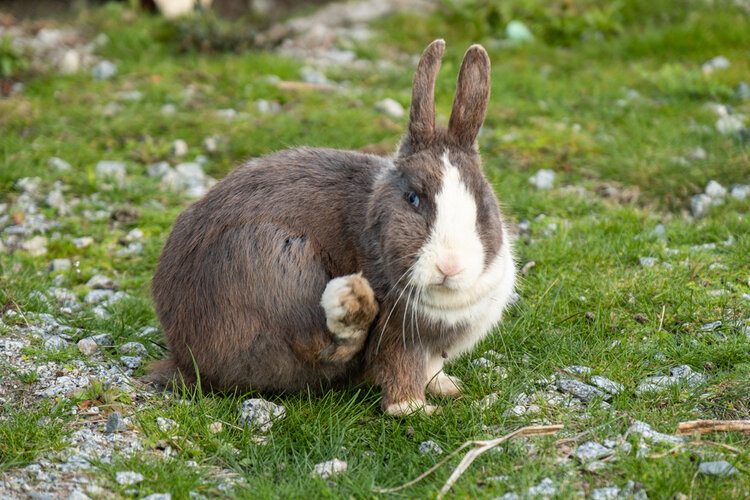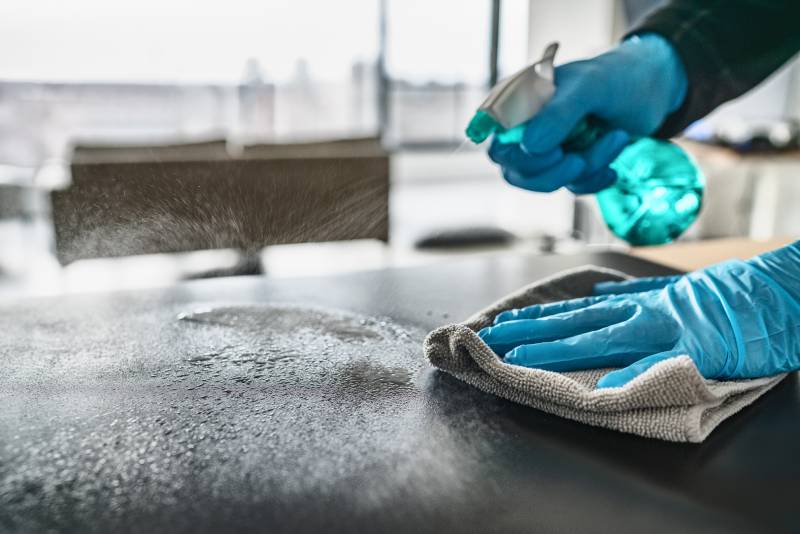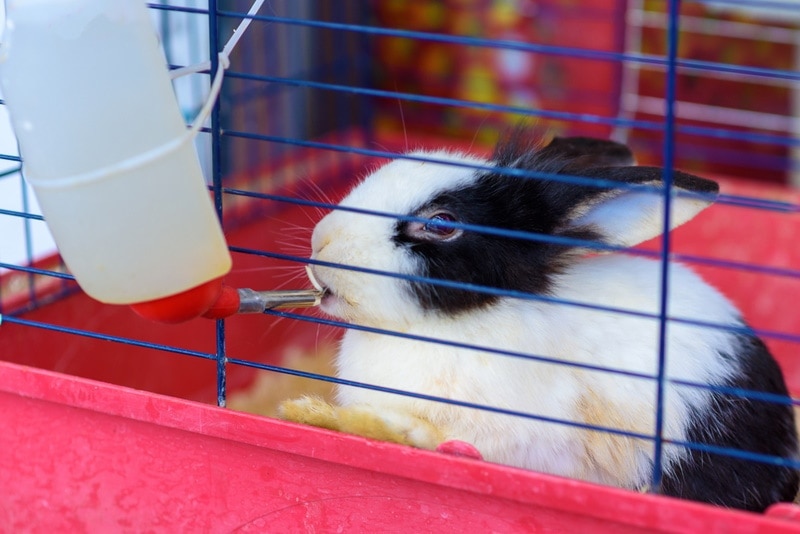
Click to Skip Ahead
Rabbits are popular pets, and they make great companions. They can be kept outdoors or inside our homes, but whether they are inside or outside pets, they are susceptible to flea infestations. Rabbit owners have a duty of care to ensure their rabbit is healthy, happy, and free of pesky parasites. Fleas are a very common problem in rabbits, so it is important to be clued up on how to identify a flea infestation and how to rid your rabbit of fleas.
Read on for the lowdown on rabbit fleas including identification, prevention, and treatment.
Rabbits and Fleas
Rabbits suffer from fleas just as dogs and cats can. They can catch fleas easily from other family pets or wild animals.
Fleas are tiny wingless insects that can jump huge distances onto unsuspecting hosts. Fleas cause itching and irritation in mild cases, but in severe cases, they can cause anemia and even death. Fleas can jump on other animals and humans in the household and bite them too.
There are lots of different types of fleas but when rabbits get fleas, they most commonly get cat fleas. There is a rabbit-specific flea, but this is relatively rare compared to the cat flea. The usual fleas that affect rabbits include Ctenocephalides felis, C canis, and Pulex irritans species.

The 8 Tips for Getting Rid of Fleas
*Disclaimer: Rabbit anatomy is very different to dogs and cats therefore dog and cat flea treatments are NOT safe to use on rabbits. Do not pick up your dog’s treatment and put it on your rabbit as this could cause them serious problems. Always speak to your vet about flea treatment and only use prescribed products. There are some rabbit-safe products that can only be used by rabbits over a certain age, so it is never a good idea to give your rabbit any medication without consulting your vet first.
1. Get Your Rabbit Examined by a Vet
Contact your vet and arrange an appointment for them to assess your rabbit. They will be able to examine your rabbit, paying close attention to its skin. There are other parasites that can live in your rabbit’s fur that cause similar symptoms that may require a different treatment approach. If fleas are present, your vet will be able to prescribe an appropriate and effective flea treatment that is suitable for your rabbit’s age and size.
2. Treat the Environment
It is estimated that 95% of the flea infestation exists in the environment at any one time. Fleas jump on the animals to feed and jump off again. If you just treat your animals but don’t treat the environment, you will continue to have a problem as the fleas will keep jumping on your pets.
3. Treat All Other Pets
Treat all animals in the household with a vet-prescribed product that is for the correct age and weight.
4. Clean Your Home
Keep your home as clean and tidy as possible. Easier said than done, especially if there are multiple pets and children in the household. If there is dirt and mess, this makes it easier for fleas to establish an infestation.

5. Use a Flea Comb on Your Rabbit
The good quality rabbit brush helps to remove any fleas in their body and also keeps their fur in good condition. Check for flea dirt using a comb as described above.
6. Check Your Rabbit Regularly
Handle your rabbit regularly, this means you will be able to check them over thoroughly for fleas and flea dirt without causing them undue stress.
7. Clean Your Rabbit Hutch
Clean out your rabbit’s hutch daily. As well as treating your home with a spray, it is important to keep your rabbit’s hutch clean and dry at all times. Rabbits can get sores from sitting on wet or soiled bedding which makes it easier for fleas to establish an infestation.
8. Separate the Pets
Separate other pets in the household from your rabbit temporarily to prevent them from passing fleas back and forth.

What to Avoid When Tackling Fleas
There are a few things that may work for other animals but are not suitable for your rabbit.
As mentioned above, never put any flea treatment on your rabbit without consulting your vet first. This includes any shop-bought products as even if they are sold for rabbits, they may not be the correct dose or age-appropriate.
Don’t bathe your rabbit as rabbits generally dislike water. The stress of giving your rabbit a bath will often be more detrimental to your rabbit than the actual flea infestation. Another point to consider is that products such as “flea shampoos” are often not suitable for rabbits and can contain harsh chemicals that can harm your rabbit.
Avoid products such as flea collars. These sorts of products are usually made for dogs and cats, and they are dangerous for rabbits. Due to the shape of rabbits, it is easy for them to get their front feet caught in the collar too which could cause them to choke or strangle themselves.
- Related Read: Will Alcohol Kill Fleas? Vet-Reviewed Facts
How to Tell if Your Rabbit Has Fleas
Where Do Rabbits Pick Up Fleas?
Rabbits usually pick up fleas from other pets in the household such as cats or dogs. Fleas jump from one animal to another and continue to reinfect each other unless all animals are treated.
If your rabbit lives outside, they can pick up fleas from other wild animals that come in close proximity to them and their hutch.
Indoor rabbits can pick up fleas if they are let outside in a run in the garden. Messy houses allow for more places for fleas to breed so there is more chance of an infestation becoming established. Humans can bring in flea eggs on their feet after walking around outside, and petting other animals in different households that have fleas can mean fleas transfer from one household to another.

How to Prevent Your Rabbit From Getting Fleas
Prevention is better than the cure, there are a few easy steps you can follow to prevent your rabbit from getting fleas.
Conclusion
Rabbits pick up fleas easily, especially if they are kept outdoors. Keeping your home tidy and clean can reduce the chances of fleas establishing an infestation. Handle and examine your rabbit regularly to check for signs of fleas. If you see any fleas, contact your vet so that they can prescribe you the appropriate treatment for your rabbit and any other pets in the household.
Never attempt to medicate your rabbit yourself as there are lots of commonly used products such as dog and cat treatment that are highly dangerous for rabbits.
Featured Image Credit: StoneMonkeyswk, Shutterstock









